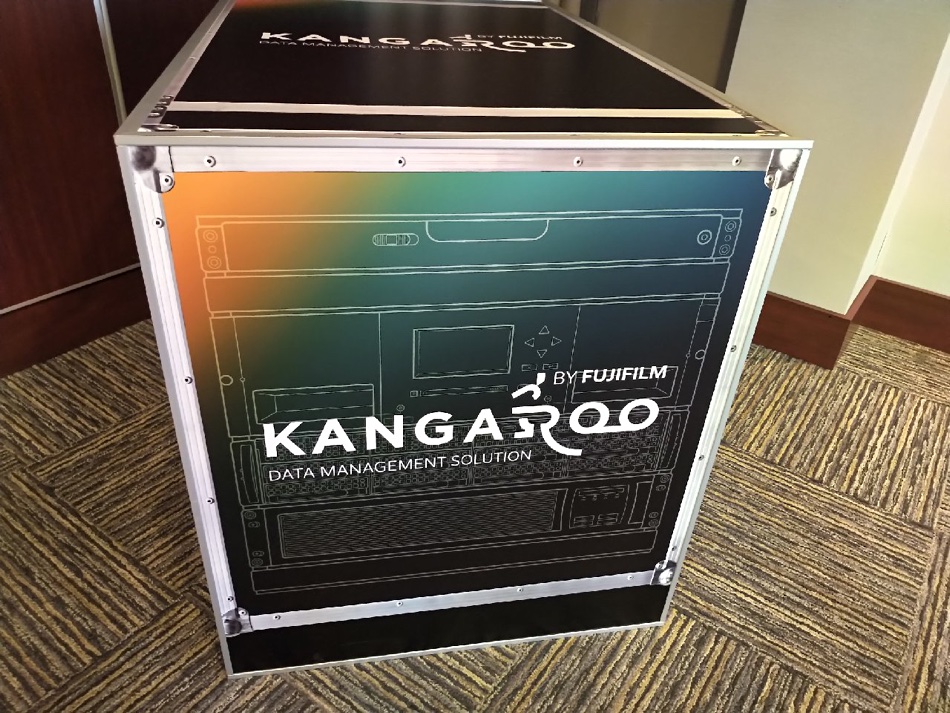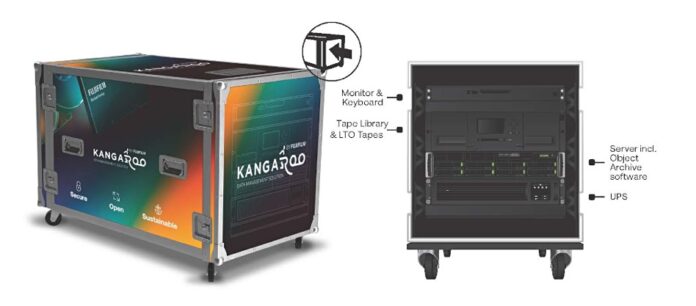Tape storage media producer and evangelist Fujifilm recently launched its Kangaroo converged system for archive storage, and it is about to release a “Lite” version to target SMBs.
The original version contains 120 LTO tapes in a wheeled box configuration that comes with an integrated mouse and screen, UPS power, and the company’s object archiving software. The unit can store up to 1 PB of data and has a list price of up to €350,000 ($375,000).
The new Lite Kangaroo can provide SMBs with up to 100 TB of data, and comes in at under €100,000 ($107,000).
Speaking at this week’s IT Press Tour in Rome, Peter Struik, executive vice president at Fujifilm Europe, said the lightweight Kangaroo would be hopping around the market in “July or August” this year. He outlined how larger organizations in Europe had already put its original and heavier parent through their paces.

The Bank of Luxembourg has already taken delivery of a unit, as has a health body, and a university in Holland. Struik added that two units were on their way to the UK to try to break the commercial market there through trials.
The Kangaroos are built using components from global markets and assembled in Germany. Struik said “the money for us is in the tapes and the software,” and that the hardware was sold “at cost” or with a “small administrative charge” on top.

He added that the firm was currently searching for new technology and channel partners to help sell the Kangaroos.
“We just want to make it easier for companies to use tape, as well as making a contribution to help reduce global warming,” Struik said.
On that last point, Fujifilm maintains that storing data on tape reduces carbon emissions by 95 percent, when compared to other hard disk data storage options. The Kangaroo is primarily designed to be used offline, so that squares with the comparison, when considering that data stored on hard disks is usually primed with a constant power source to deliver instant access, whether it is immediately needed or not.
Indeed, Fujifilm says 70 percent of business data is “cold,” and therefore not immediately needed for business operations. However, only 5 percent of this cold data is stored on “appropriate” systems, like cheaper tape, says Fujifilm.








